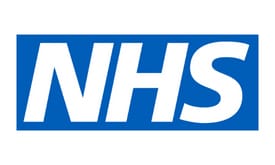Nonsteroidal anti-inflammatory drugs (NSAIDs) are used to reduce inflammation, with notable benefits in increasing survival and reducing risk of several types of cancer; however, expert consensus is that the risks of harm from using these drugs long-term are greater than the benefits for prevention against cancer for many people.
Safety and precautions
NSAIDs can have serious, even life-threatening side effects. Some NSAIDs have more frequent or more serious side effects than others. Use them only under medical supervision.
Cancer mortality or risk
Some use of NSAIDs is linked to a few instances of higher cancer mortalitydeath, or the death rate in a population; cancer studies often report all-cause mortality (death from any cause) and cancer-specific mortality (death due to the cancer under investigation) or risk of cancer.
- Higher cancer-specific mortality among people with a non-serous ovarian tumor with non-aspirin NSAID use after diagnosis in a large observationala type of study in which individuals are observed or certain outcomes are measured, but no attempt is made to affect the outcome (for example, no treatment is given); an example is a study that records people’s diets, but doesn’t try to alter their diets, and looks for patterns of disease or other outcomes related to different foods study1Verdoodt F, Dehlendorff C, Friis S, Kjaer SK. Non-aspirin NSAID use and ovarian cancer mortality. Gynecologic Oncology. 2018 Aug;150(2):331-337.
- Higher risk of ER+/PR+, HER2−, and p53− breast cancers, as well as luminal A or B breast cancers, among people with recent use of ibuprofen compared to no use in a large observational study2Brasky TM, Bonner MR et al. Non-steroidal anti-inflammatory drugs (NSAIDs) and breast cancer risk: differences by molecular subtype. Cancer Causes and Control. 2011 Jul;22(7):965-75.
Modest evidencesignificant effects in at least three small but well-designed randomized controlled trials (RCTs), or one or more well-designed, mid-sized clinical studies of reasonably good quality (RCTs or observational studies), or several small studies aggregated into a meta-analysis (this is the CancerChoices definition; other researchers and studies may define this differently) of higher risk of recurrent advanced adenomas and/or 2 or more adenomas after colorectal adenoma surgery among people using NSAIDs 4 or more days/week and using vitamin D3
- Higher risk of recurrent advanced adenomas and/or 2 or more adenomas after colorectal adenoma surgery among people using aspirin or other nonsteroidal anti-inflammatory drugs (NSAIDs) 4 or more days/week and using 1000 IU/day vitamin D3 compared to those with less frequent NSAID use in a large RCTrandomized controlled trial, a study design in which people are randomly assigned to either an experimental group or a control group to compare the outcomes from different treatments; an RCT is considered a strong design for determining a therapy’s effects3Calderwood AH, Baron JA, et al. No evidence for posttreatment effects of vitamin D and calcium supplementation on risk of colorectal adenomas in a randomized trial. Cancer Prevention Research. 2019 May;12(5):295-304.
Cancer screening
A 2023 analysis found that fecal occult blood testing, a common screening method for colorectal cancer, was less accurate among people who were taking aspirin or NSAIDs.4Pang SJ, Lin ZP et al. Impact of antithrombotic drugs on the accuracy of fecal occult blood testing for advanced colorectal neoplasia screening: a meta-analysis and systematic review. Zeitschrift fur Gastroenterologie. 2023 Mar;61(3):297-306.
Side effects and symptoms
NSAIDS have several side effects that are more common or more dangerous for people with cancer. Many of these side effects relate to cardiovascular health and bleeding. Taking any NSAID doubles the risk of heart failure.5Coxib and traditional NSAID Trialists’ (CNT) Collaboration; Bhala N, Emberson J, Merhi A, et al. Vascular and upper gastrointestinal effects of non-steroidal anti-inflammatory drugs: meta-analyses of individual participant data from randomised trials. Lancet. 2013 Aug 31;382(9894):769-79. Many NSAIDS also increase the risk of heart attack or stroke, even after just a few weeks of use:6US Food and Drug Administration. FDA Drug Safety Communication: FDA strengthens warning that non-aspirin nonsteroidal anti-inflammatory drugs (NSAIDs) can cause heart attacks or strokes. US Department of Health and Human Services. February 26, 2018. Viewed January 11, 2021. coxibs (including celecoxib) and diclofenac increase the risk of heart attack or stroke by a third, while ibuprofen doubles the risk of a heart attack.7Coxib and traditional NSAID Trialists’ (CNT) Collaboration; Bhala N, Emberson J, Merhi A, et al. Vascular and upper gastrointestinal effects of non-steroidal anti-inflammatory drugs: meta-analyses of individual participant data from randomised trials. Lancet. 2013 Aug 31;382(9894):769-79. Many researchers have concluded that for NSAIDs other than aspirin, the risks of serious cardiovascular events outweigh the cancer-preventive benefits of long-term use;8Veettil SK, Lim KG et al. Effects of aspirin and non-aspirin nonsteroidal anti-inflammatory drugs on the incidence of recurrent colorectal adenomas: a systematic review with meta-analysis and trial sequential analysis of randomized clinical trials. BMC Cancer. 2017 Nov 14;17(1):763; Wakeman C, Keenan J et al. Chemoprevention of colorectal neoplasia. ANZ Journal of Surgery. 2017 Dec;87(12):E228-E232; Arber N, Eagle CJ et al. Celecoxib for the prevention of colorectal adenomatous polyps. New England Journal of Medicine. 2006 Aug 31;355(9):885-95; Bertagnolli MM, Eagle CJ et al. Celecoxib for the prevention of sporadic colorectal adenomas. New England Journal of Medicine. 2006 Aug 31;355(9):873-84; Mohammed A, Yarla NS, Madka V, Rao CV. Clinically relevant anti-inflammatory agents for chemoprevention of colorectal cancer: new perspectives. International Journal of Molecular Sciences. 2018 Aug 8;19(8). pii: E2332; Kerr DJ, Dunn JA et al; VICTOR Trial Group. Rofecoxib and cardiovascular adverse events in adjuvant treatment of colorectal cancer. New England Journal of Medicine. 2007 Jul 26;357(4):360-9; Tomić T, Domínguez-López S, Barrios-Rodríguez R. Non-aspirin non-steroidal anti-inflammatory drugs in prevention of colorectal cancer in people aged 40 or older: a systematic review and meta-analysis. Cancer Epidemiology. 2019;58:52–62; Fajardo AM, Piazza GA. Chemoprevention in gastrointestinal physiology and disease. Anti-inflammatory approaches for colorectal cancer chemoprevention. American Journal of Physiology. Gastrointestinal and Liver Physiology. 2015 Jul 15;309(2):G59-70. several studies were halted before completion because of safety concerns.9Bertagnolli MM, Eagle CJ et al; Adenoma Prevention with Celecoxib Study Investigators. Five-year efficacy and safety analysis of the Adenoma Prevention with Celecoxib Trial. Cancer Prevention Research (Phila). 2009 Apr;2(4):310-21. Among people undergoing chemotherapy (FOLFOX) for colon cancer, there is strong evidence that NSAIDs increase the risk of hypertension (high blood pressure).10Meyerhardt JA, Shi Q. Effect of celecoxib vs placebo added to standard adjuvant therapy on disease-free survival among patients with stage III colon cancer: the CALGB/SWOG 80702 (Alliance) randomized clinical trial. JAMA. 2021 Apr 6;325(13):1277-1286.
NSAIDS are also known to cause kidney damage; about 1% of people who take NSAIDs show signs of kidney damage,11Nash DM, Markle-Reid M, Brimble KS, McArthur E, Roshanov PS, Fink JC, Weir MA, Garg AX. Nonsteroidal anti-inflammatory drug use and risk of acute kidney injury and hyperkalemia in older adults: a population-based study. Nephrol Dial Transplant. 2019 Jul 1;34(7):1145-1154. but the rate is higher among people with medical conditions. There is good evidence that taking NSAIDs alongside immune checkpoint inhibitors (a type of cancer treatment) doubles the risk of acute kidney injury,12Liu C, Wei W et al. Incidence and risk factors of acute kidney injury in cancer patients treated with immune checkpoint inhibitors: a systematic review and meta-analysis. Frontiers in Immunology. 2023 May 29;14:1173952. and strong evidence that people with colon cancer undergoing FOLFOX chemotherapy are at a higher risk of kidney damage if they take NSAIDs.13Meyerhardt JA, Shi Q. Effect of celecoxib vs placebo added to standard adjuvant therapy on disease-free survival among patients with stage III colon cancer: the CALGB/SWOG 80702 (Alliance) randomized clinical trial. JAMA. 2021 Apr 6;325(13):1277-1286.
Taking any NSAIDs increases the risk of upper gastrointestinal complications: celecoxib and diclofenac roughly double the risk of gastrointestinal bleeding, while ibuprofen and naproxen roughly quadruple it.14Coxib and traditional NSAID Trialists’ (CNT) Collaboration; Bhala N, Emberson J, Merhi A, et al. Vascular and upper gastrointestinal effects of non-steroidal anti-inflammatory drugs: meta-analyses of individual participant data from randomised trials. Lancet. 2013 Aug 31;382(9894):769-79. There is also good evidence that people taking nonspecific NSAIDs (including ibuprofen, naproxen, tenoxicam, ketoprofen, mefenamic acid, and sundilac) have a higher risk of anastomotic leak, or leaking at the site of a surgical connection within the intestines, which can cause life-threatening infections.15Kastora SL, Osborne LL et al. Non-steroidal anti-inflammatory agents and anastomotic leak rates across colorectal cancer operations and anastomotic sites: A systematic review and meta-analysis of anastomosis specific leak rate and confounding factors. European Journal of Surgical Oncology. 2021 Nov;47(11):2841-2848.
In addition, some studies find that people with cancer taking NSAIDs, particularly indomethacin, show worse pain over time.16Guo Q, Li Q et al. A comprehensive evaluation of clinical efficacy and safety of celecoxib in combination with chemotherapy in metastatic or postoperative recurrent gastric cancer patients: a preliminary, three-center, clinical trial study. Medicine (Baltimore). 2019 Jul;98(27):e16234; Huang R, Jiang L et al. Comparative efficacy of therapeutics for chronic cancer pain: a Bayesian network meta-analysis. Journal of Clinical Oncology. 2019 Jul 10;37(20):1742-1752.
Drug interactions
Celecoxib (Celebrex) may interact with these drugs:17Ogbru A, Marks JW. COX-2 Inhibitor Medications. Rx List. Viewed February 8, 2021.
- Increases the concentration of lithium in the blood and may increase the blood-thinning effect of warfarin (Coumadin)
- Fluconazole (Diflucan) impairs metabolism of celecoxib (Celebrex), increasing its level in the body.
Further drug interactions are listed on these sites:

National Health Service
Do not use (contraindications)
If you’re receiving treatments—for cancer or other conditions—that cause low platelet counts or thin your blood, you should check with your doctor before use.
Caution is advised if you have hypertension or risk factors for gastrointestinal bleeding. Avoiding or discontinuing NSAID use in cancer patients is not advised in one review, but careful monitoring for side effects such as cardiovascular events (with COX-2 inhibitors) or gastrointestinal bleeding is recommended if used.18Solheim TS, Fearon KC, Blum D, Kaasa S. Non-steroidal anti-inflammatory treatment in cancer cachexia: a systematic literature review. Acta Oncologica 2013 Jan;52(1):6-17.
Helpful link
References


